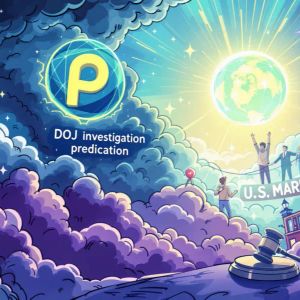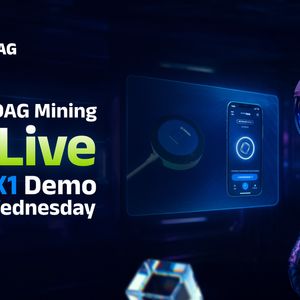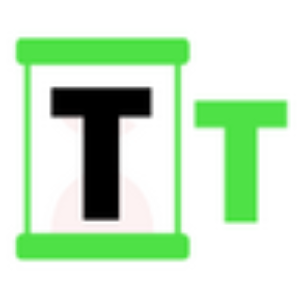Polymarket’s Triumphant Return: Unlocking the U.S. Market After DOJ Investigation Closure
7 min read
BitcoinWorld Polymarket’s Triumphant Return: Unlocking the U.S. Market After DOJ Investigation Closure The cryptocurrency world is buzzing with exhilarating news: Polymarket , the trailblazing decentralized prediction platform, is set to make a triumphant return to the U.S. market. This monumental comeback follows the pivotal decision by the U.S. Department of Justice (DOJ) to close its investigation into the company, clearing a significant hurdle for its operations. For anyone invested in the future of decentralized finance (DeFi) and the innovative realm of prediction markets, this development concerning Polymarket marks a pivotal moment, signaling a potential new era of growth and regulatory clarity. What Led to Polymarket’s Grand Re-entry? The journey for Polymarket has been one of innovation coupled with regulatory navigation. In 2022, the platform faced a significant challenge when the Commodity Futures Trading Commission (CFTC) ordered it to pay a civil monetary penalty and cease offering certain unregistered event-based swaps. This action highlighted the complex and often ambiguous regulatory landscape for decentralized applications (dApps) operating within U.S. borders. However, the recent news, initially reported by Unfolded on X, indicates a significant shift. The U.S. Department of Justice (DOJ) has officially closed its investigation into Polymarket . This decision is a monumental victory for the platform, as it removes a major cloud of uncertainty that had lingered over its U.S. operations. The closure of the DOJ investigation signifies that the federal government is no longer pursuing criminal charges or civil enforcement actions related to the company’s past activities, paving a clearer path forward. To solidify its re-entry and ensure future compliance, Polymarket is taking a strategic step: acquiring an existing exchange. This move is crucial because it allows Polymarket to leverage an established entity that likely already possesses the necessary licenses and operational frameworks to function within the U.S. regulatory environment. Rather than building a compliant infrastructure from scratch, which can be a lengthy and arduous process, this acquisition offers a fast-track solution. It demonstrates Polymarket ‘s commitment to operating within legal boundaries while continuing to offer its innovative prediction market services. How Will Polymarket Navigate the U.S. Regulatory Landscape? The U.S. regulatory environment for cryptocurrencies and decentralized platforms remains highly fragmented and complex. Various agencies, including the SEC, CFTC, and FinCEN, assert jurisdiction over different aspects of digital assets. For Polymarket , the challenge has always been to define itself and its offerings in a way that aligns with existing laws, particularly those governing commodities, securities, and gambling. The acquisition of an exchange is a sophisticated maneuver designed to address these complexities head-on. By integrating with an entity that already holds licenses and has established compliance protocols, Polymarket can potentially: Operate under existing regulatory frameworks: The acquired exchange likely has a history of compliance with U.S. financial regulations, providing a blueprint for Polymarket ‘s future operations. Mitigate future legal risks: Operating through a regulated entity can shield Polymarket from direct regulatory scrutiny, as the acquired entity bears the primary responsibility for compliance. Access traditional financial rails: A licensed exchange can facilitate easier on-ramps and off-ramps for users, connecting the decentralized platform to the traditional banking system in a compliant manner. Despite the positive development with the DOJ, Polymarket will still need to meticulously navigate state-specific regulations and ongoing federal interpretations. The crypto regulatory landscape is dynamic, and continuous adaptation will be key to Polymarket’s long-term success in the U.S. market. Their proactive approach in acquiring a compliant entity suggests a strong commitment to this ongoing challenge. What Does This Mean for Decentralized Prediction Markets and Polymarket Users? The return of Polymarket to the U.S. market carries significant implications for both its user base and the broader decentralized prediction market sector. For users, it means renewed access to a popular platform that offers a unique way to engage with current events, economic trends, and social phenomena by betting on future outcomes. Key benefits for users and the market include: Increased Accessibility: U.S. users, previously restricted or operating in a gray area, can now potentially participate more freely and confidently on Polymarket . Enhanced Liquidity: A larger user base from the U.S. can lead to deeper markets, tighter spreads, and more robust price discovery on various prediction events. Broader Market Variety: With increased operational certainty, Polymarket may be encouraged to offer an even wider array of prediction markets, catering to diverse interests. Validation for DeFi: Polymarket ‘s successful navigation of regulatory challenges provides a powerful precedent for other decentralized applications seeking to operate compliantly within established jurisdictions. To understand the unique value proposition, consider the fundamental differences between traditional betting and decentralized prediction markets: Feature Traditional Betting Platforms Decentralized Prediction Markets (e.g., Polymarket ) Centralization Centralized operator controls funds and outcomes. Decentralized protocols, smart contracts govern outcomes. Transparency Opaque odds setting and fund management. All transactions and market data on public blockchain. Accessibility Often geo-restricted, requires KYC/AML. Globally accessible (though some platforms restrict U.S. users). Regulation Highly regulated in most jurisdictions. Evolving regulatory landscape, often in a gray area. Payouts Manual processing, potential delays. Automated via smart contracts, instant upon resolution. This development reinforces the idea that decentralized platforms, even those operating in sensitive areas like prediction markets, can find pathways to legitimate operation within major economies. It’s a testament to the evolving understanding and acceptance of blockchain technology by regulatory bodies. The Future is Bright: What’s Next for Polymarket? With the DOJ investigation behind it and a clear strategy for U.S. re-entry through acquisition, the future looks exceptionally promising for Polymarket . This pivotal moment could usher in a period of accelerated growth and innovation for the platform. What can we expect next for Polymarket ? Product Expansion: The platform may introduce new types of markets, perhaps delving deeper into areas like sports, entertainment, or even more nuanced geopolitical events, leveraging its newfound regulatory clarity. User Growth Initiatives: Expect marketing campaigns aimed at re-engaging U.S. users and attracting new participants who were previously hesitant due to regulatory uncertainties. Technological Enhancements: Continued development of the underlying protocol to improve user experience, reduce gas fees, and enhance the overall efficiency of the prediction market ecosystem. Partnerships: Polymarket might seek collaborations with other DeFi projects, data providers, or traditional news outlets to enhance its market offerings and data accuracy. Community Engagement: As a decentralized platform, fostering a strong, active community will remain crucial for Polymarket ‘s long-term success, potentially involving more robust governance mechanisms. The successful return of Polymarket to the U.S. market is not just a win for one company; it’s a significant indicator for the entire decentralized finance industry. It signals that with diligent effort, strategic planning, and a commitment to compliance, even the most innovative and boundary-pushing dApps can find their place within established regulatory frameworks. This could set a precedent for future interactions between decentralized technologies and traditional legal systems, fostering a more mature and integrated crypto ecosystem. In conclusion, Polymarket ‘s journey from regulatory scrutiny to a triumphant U.S. re-entry through strategic acquisition marks a watershed moment. It underscores the resilience of decentralized innovation and the evolving understanding of digital assets by regulatory bodies. As Polymarket re-establishes its presence, it promises to inject new vitality into the prediction market space, offering exciting opportunities for users and paving the way for a more compliant and accessible future for DeFi in the United States. This development is a testament to the power of perseverance and strategic adaptation in the face of complex regulatory landscapes. Frequently Asked Questions (FAQs) 1. What is Polymarket? Polymarket is a decentralized prediction market platform built on blockchain technology. It allows users to bet on the outcome of real-world events, such as political elections, economic indicators, or scientific breakthroughs, using cryptocurrency. 2. Why was Polymarket under investigation by the DOJ? Polymarket faced scrutiny from U.S. regulators, including the DOJ and CFTC, primarily concerning whether its prediction markets constituted unregistered event-based swaps or illegal gambling operations under U.S. law. The recent DOJ investigation closure means the federal government is no longer pursuing criminal or civil actions against the company. 3. How does Polymarket’s acquisition of an exchange facilitate its U.S. return? By acquiring an existing exchange, Polymarket can leverage a pre-established entity that likely already holds the necessary licenses and has a compliant operational framework for operating within the U.S. financial regulatory environment. This strategy helps them navigate complex regulations more efficiently. 4. What are the implications for U.S. users of prediction markets? For U.S. users, Polymarket ‘s return means potentially clearer and more legitimate access to decentralized prediction markets. This could lead to increased participation, better liquidity, and a wider range of markets available for betting on various outcomes. 5. Is Polymarket fully compliant with U.S. regulations now? The closure of the DOJ investigation is a major step, and the acquisition of an exchange is a strategic move towards compliance. However, the U.S. regulatory landscape for crypto is complex and constantly evolving. Polymarket will need to maintain ongoing vigilance and adapt to new regulations to ensure continued compliance across all relevant jurisdictions. 6. What is the difference between traditional betting and decentralized prediction markets like Polymarket? Traditional betting platforms are centralized, with operators controlling funds and outcomes. Decentralized prediction markets like Polymarket use smart contracts on a blockchain for transparency and automated payouts, offering a more censorship-resistant and often globally accessible alternative. Did you find this article insightful? Share it with your friends and colleagues on social media to spread the word about Polymarket ‘s exciting return and the evolving landscape of decentralized finance! This post Polymarket’s Triumphant Return: Unlocking the U.S. Market After DOJ Investigation Closure first appeared on BitcoinWorld and is written by Editorial Team

Source: Bitcoin World



